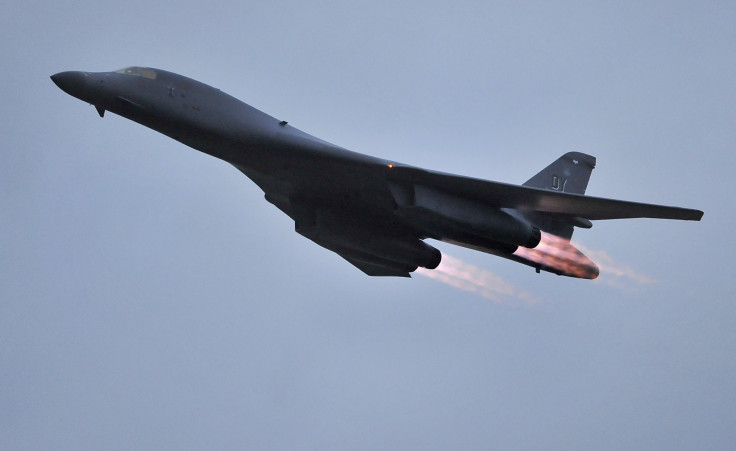US In Talks To Deploy B-1 Bombers, Expand B-52 Missions In Australia Amid Growing Tensions In South China Sea

The United States is in talks to increase the presence of long-range bombers in northern Australia as concerns over China’s military expansion grow in the Asia-Pacific region, local media reported Wednesday. Although Australian Defense Minister Marise Payne acknowledged that the U.S. Air Force will have larger presence in the country, she refused to comment on the deployment of the bombers.
High-level discussions are in progress with Australia to have U.S. B-1 bombers temporarily deployed in the country’s Northern Territory, Gen. Lori Robinson, the commander of the Pacific Air Forces, said, according to Australian Broadcasting Corporation (ABC). Robinson said discussions were underway to rotate U.S. bombers through the northern Australian air force bases at Darwin and Tindal.
“It gives the opportunity to train our pilots to understand the theater and how important it is to strengthen our ties with our great allies, the RAAF [Royal Australian Air Force],” Robinson said, according to ABC.
Lt. Col. Damien Pickart, a spokesman for the U.S. Air Force in the Pacific, told Reuters that American officials are also considering an expansion of B-52 bomber missions, insisting that any decision on the matter is yet to be reached. If an agreement is finalized, it would position more U.S. military aircraft close to the disputed region in the South China Sea and risk angering China, Reuters reported, citing experts.
“These bomber rotations provide opportunities for our Airmen to advance and strengthen our regional alliances and provide [Pacific Air Forces] and U.S. Pacific Command leaders with a credible global strike and deterrence capability to help maintain peace and security in the Indo-Asia-Pacific region,” Pickart told the news agency.
Meanwhile, Australian Defense Minister Payne said: “The Enhanced Air Cooperation Initiative, which is part of the Force Posture Initiative, is in development and will result in increased rotations of US Air Force elements through Northern Australia. Australia remains strongly supportive of the U.S. rebalance to our near region, and we work together closely in support of our common regional interests.”
On a similar note, Australian Prime Minister Malcolm Turnbull said that the country’s close security relationship with the U.S. is “no secret.”
“I can just assure you that everything we do in this area is very carefully determined to ensure that our respective military forces work together as closely as possible in our mutual national interests,” Turnbull said Wednesday, according to Reuters.
The move is likely to exacerbate tensions with China who claims most of the South China Sea region, leading to territorial disputes with several countries, including Vietnam, the Philippines and Malaysia. Relations between the U.S. and China have also strained in recent weeks after the U.S. Navy conducted freedom of navigation exercises, sailing near disputed islands to emphasize its rights to operate in the seas. The patrols and China’s deployment of advanced missiles and radar equipments in the disputed area resulted in both the states accusing each other of militarizing South China Sea.
In addition, Robinson also stressed that the U.S. would continue to carry out exercises through the disputed region and called on Australia to conduct similar freedom of navigation exercises in the South China Sea.
“We would encourage anybody in the region and around the world to fly and sail in international air space in accordance with international rules and norms,” ABC quoted Robinson as saying. “We would encourage all nations in the region to do just that, just as the United States is doing.”
© Copyright IBTimes 2024. All rights reserved.






















